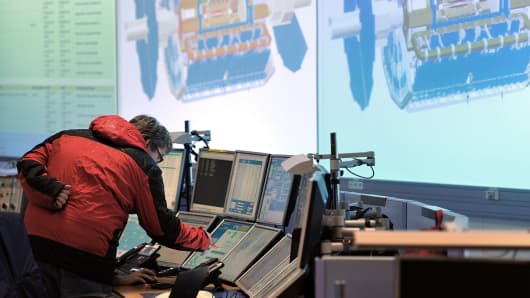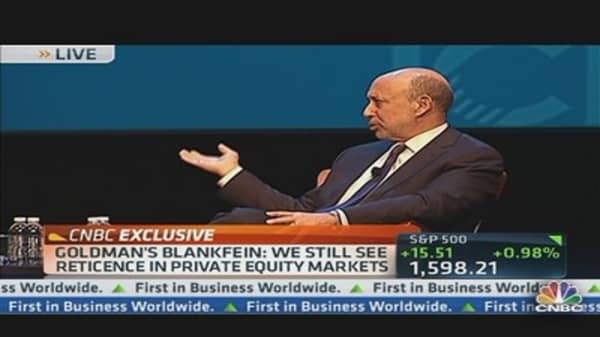Goldman Sachs has become the latest investment bank to recruit a CERN researcher, highlighting a trend of career moves from physics to finance.
Ryan Buckingham, who worked as research physicist at CERN (European Organization for Nuclear Research) after completing a PhD at Oxford, joined the investment bank as a credit structuring strategist last month.
But the move is not an unusual one, according to Anne Richards, chief investment officer at Aberdeen Asset Management. Richards, a CERN-alumna herself, was studying for an MBA at INSEAD business school in France when she fell in love with financial markets.
"When we are hiring … we are big believers in scientific people," she told CNBC. "The rigor of engineering is a help through the career."
She made the distinction between "two buckets" of scientists in finance: those who become quantitative analysts, or quants, and those who are numerate, but more of a generalist, with good problem-solving skills.
The Institute of Physics (IoP) has run a survey tracking the career development of British physicists over the first four years following graduation.
"Of those who went into employment, 16 percent went into finance," Stephanie Richardson, head of membership development at the IoP, told CNBC. "We also run a career event for physicists – and the Bank of England is one of the most recurrent employers recruiting physicist graduates."
CERN, based in Switzerland, employs thousands of scientists in the world's most expensive laboratory. Its physicists hope to prove the existence of the Higgs Boson, which – because of its importance to fundamental physics – is often referred to as "the God particle".




.530x298.jpg?v=1370266037)
